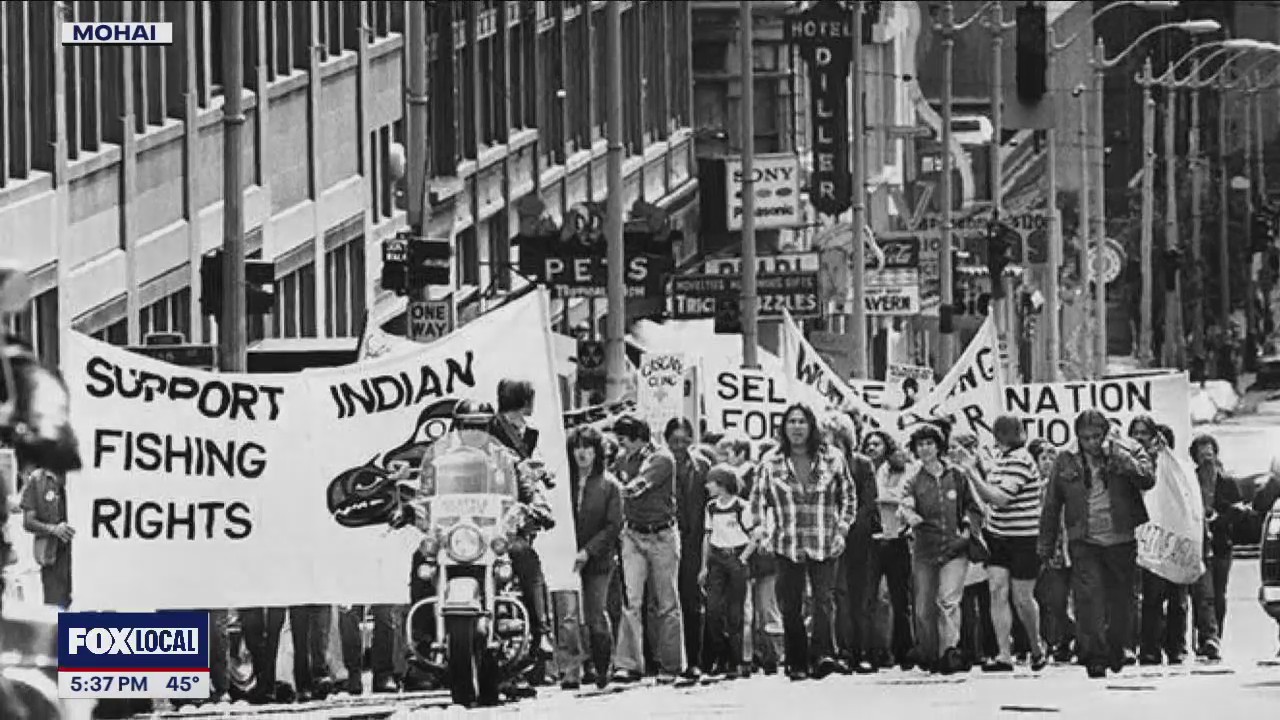From ‘Fish Wars’ to legal triumph: The Boldt Decision, 50 years later

The ‘Fish Wars’ 50 years later: Where does the Boldt Decision stand today?
50 years ago, a U.S. District Court judge in Washington issued one of the most consequential legal rulings in modern case law.
SEATTLE - Fifty years ago, a U.S. District Court judge in Washington issued one of the most consequential legal rulings in modern case law. The Boldt Decision marked the culmination of seven decades of protests, arrests, and violence in the infamous ‘Fish Wars.’
The landmark federal ruling dealt specifically with local fishing rights, but its affirmation of tribal sovereignty has had a nationwide impact.
Origins of the conflict
In 1854, when Washington was not yet a state, Indian nations around Puget Sound ceded tribal lands, with the guarantee that their "usual and accustomed" fishing grounds would always be there.
"In exchange for millions of acres of land, they were able to reserve the right to fish," explained Brooke Pinkham, Director of the Center for Indian Law and Policy at Seattle University.
Professor Pinkham is Nez Perce and grew up within the community of the Confederated Tribes and Bands of the Yakama Nation.
"It was a livelihood for them, for us. A livelihood that not only sustained the fish and waterways that sustained our way of life, not just physically but spiritually," remarked Pinkham.
As salmon proved extremely profitable over the years and commercial fishing became a cash cow, the treaty signed by then-Governor Isaac Stevens was tested. Eric Eberhard, Assistant Director of the Native American Law Center at the University of Washington, says by the end of World War II, there simply wasn’t enough fish to meet the growing demand.
"They were bringing in more fish than they could process," said Eberhard. "Whole barges full of fish were dumped in Elliot Bay."
Conservation concerns and cries from angry commercial fishermen sparked crackdowns on local tribes, igniting the Fish Wars of the 1960s and 70s.
"That’s when it really got very intense," said Eberhard.
‘Violent and nasty time’; The infamous Fish Wars
Marches down Seattle’s First Ave, proud displays of tradition and culture inside the Washington State Capitol in Olympia. Peaceful uprisings were held to raise awareness of the injustice and danger local tribes faced for defying state orders.
"They were shot at, their boats were confiscated and the bottoms were beat out of the boat," said Eberhard. "They would use their nets in the river and non-natives would throw bales of hay in the river to fowl the nets. It was war."
Legal turning point
In 1974, after the upstream battle reached the highest courts in the land, Judge Hugo Boldt reviewed past federal rulings and found that the treaties reserved the legal right for those fishermen to harvest on their ancestral grounds.
"He required that there be a co-management system between tribal nations and the state," said Pinkham.
He decreed that moving forward, the annual catch allowed in the state of Washington must be split 50-50, with half going to the tribes.
"For many native people it was the first time that there was a clear understanding that what the treaty meant was they were limited half of the annual take," explained Eberhard.
READ MORE: Tribes press governor, AG’s office for answers after years-long investigation into tribal fishermen
Half a century later: Are the Fish Wars really over?
Five decades later, questions remain. Despite the end of the Fish Wars, there's still a major depletion in the salmon population throughout the region. Tribes have had to sue to ensure the state replaces hundreds of culverts with new fish passages.
"We see movements around dam removal and preservation of fish under those treaty rights," said Pinkham.
The treaty’s validity is meaningless if there are no longer any fish left to catch.
"When you look at the resource as it exists at treaty time, compared to how it is today, it’s barely hanging on," remarked Eberhard. "It’s a race against time."

